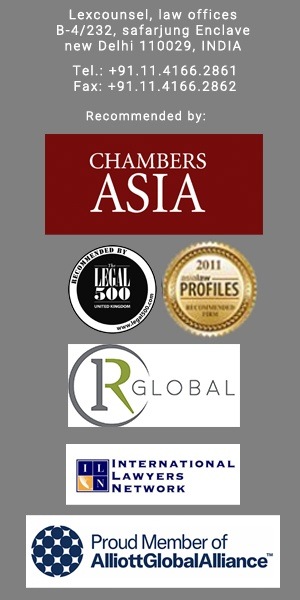
Indian Courts Act Tough on Social Networking Sites
If you have questions or would like additional information on the material covered herein, please contact:
The future for Facebook, Google, YouTube and many other social networking sites in India may be full of difficulties if the Indian courts continue with…

Indian Courts Act Tough on Social Networking Sites
The future for Facebook, Google, YouTube and many other social networking sites in India may be full of difficulties if the Indian courts continue with their strict stance adopted thus far.
On a private complaint filed under various provisions of the Indian Penal Code, 1860, punishing obscene objects, literature and contents, a criminal (lower) court in Delhi has summoned representatives of some 21 (twenty one) social networking sites including the aforesaid global biggies along with Microsoft and Yahoo. Reportedly, a Delhi judge has also ordered the social networking sites to remove all “anti-religious” and “anti-social” contents by February 6, 2012. The social networking sites thereafter approached the Delhi High Court (“DHC”) inter alia seeking stay of criminal proceedings against them.
While the DHC has till date not interfered with the criminal proceedings, its oral observations during the hearings indicate towards further troubles for social networking sites. At one instance, the judge observed that it might not
hesitate going the China way, if the networking sites failed to remove the objectionable materials. At another stage in the arguments, the judge appreciated the “revenue per click” argument presented by the complainant’s counsel, and observed that the sites could be liable and responsible for the content posted or accessed through their platform, as they benefit from the users surfing it.
The DHC is hearing detailed arguments in the matter on a regular basis, and is expected to pass a detailed order on the subject, which may have far reaching implications on future operations and conduct of social networking
sites in India.
“Junk Foods” to be Kept Away From Schools
The DHC has on January 11, 2012 allowed 6 (six) months to the Food Safety and Standards Authority of India (“FSSAI”) to frame guidelines banning/regulating sale of “junk foods” and aerated drinks in and around educational institutions.
The directive came during the hearing of a Public Interest Litigation filed by a Non-Government Organization (NGO) in 2010 contending that “junk food” damages the health and mental growth of children. The NGO sought directions of the DHC to, inter alia, ban sale of “junk foods”, “fast foods” and carbonated beverages in and near schools campuses and to direct the Government to develop a comprehensive school canteen policy.
The task of FSSAI would include defining “junk food” and “fast food”, the terms used every day, but are not legally defined under the Food Safety and Standards Act, 2006 or the Prevention of Food Adulteration Act, 1954 (now
repealed).
The Government has in its short reply acknowledged the ill effects of “junk oods” on health, with a broad understanding that “junk foods” contain “empty calories” from high fat and/or sugar contents without micronutrients such as vitamins, minerals, amino acids and fiber. Based on the studies, the Government also stated that “junk foods” and aerated drinks were responsible for obesity, dental cavities, diabetes and heart diseases. The Government’s reply however did not promise any concrete steps to regulate sale of such food items in and near schools, promoting the DHC to ask the Government to frame definitive guidelines in this regard.
It would be interesting to see the definition of “junk food” and “fast food”. While many notions of western food joints serving these foods may stand vindicated, chances are that a number of Indian food items served in school canteens may also fall within their mischief. The implementation of the guidelines may
also pose an altogether new set of challenges.
Feedback
Disclaimer: LexCounsel provides this e-update on a complimentary basis solely for informational purposes. It is not intended to constitute, and should not be taken as, legal advice, or a communication intended to solicit or establish any attorney-client relationship between LexCounsel and the reader(s). LexCounsel shall not have any obligations or liabilities towards any acts or omission of any reader(s) consequent to any information contained in this e-newsletter. The readers are advised to consult competent professionals in their own judgment before acting on the basis of any information provided hereby.
